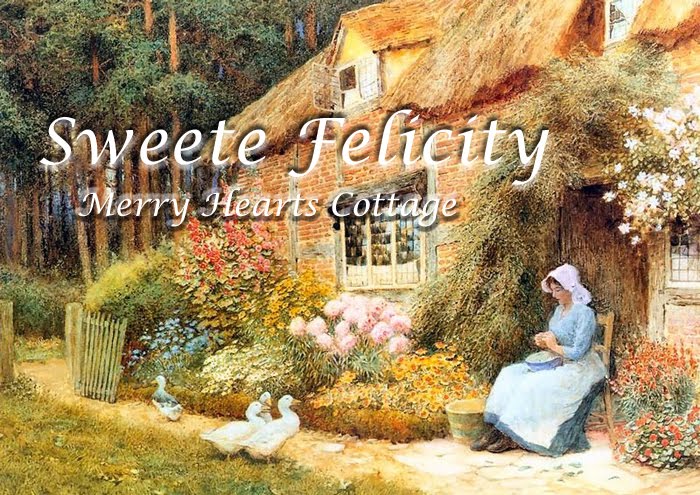
Almost hidden under the shadows of two large elm trees there is a small cottage with only four rooms, all on the ground floor, flanked by a woodshed. It sits in a garden that runs all round the house; in front spangled with the blossoms of nasturtiums and petunias, behind filled with useful vegetables, kept free from weeds by a hoe wielded by a woman’s hand. The furniture in the house cannot be worth more than a hundred dollars, and yet it is the home of one of the happiest, busiest women that I know. She makes a palace of if for her husband and her child; it is the pleasure and pride of her life, to be kept clean and cared for as though she knew it was God’s gift, as perhaps it is. She was a child sent by a city institution to a farmer’s family to be child and drudge, and while growing into womanhood drifted from family to family. She had no possessions of her own safe the poor clothes she wore, no position in social life, no love till the one man came; and when marriage to a farm day worker gave this cottage into her care, all the love that girls give dolls, parents and playmates was given to her husband and her home.
A ways from here a friend has a mansion, so perfect as a human dwelling-place that if any material source gave soul content, this house surely would. The art treasures in it are costly enough to maintain a family in luxury if they yielded interest in gold, and two men work in the garden and greenhouse that the setting may match the architecture and make the whole complete. Yet often as I have been in the house I have never heard the owner give utterance tone sentence that bore witness to a satisfied heart, and this is the more singular because the house was of his own contriving. His wife is a saint, his children are full of promise; but in not one hour spent with all these sources of human joy has the spirit of them touched with the hand of peace the perturbed heart of the owner.

There is a lesson for all mothers here: They can educate their children in certain habits of mind. The whole of life is colored by the inward light if that light comes from God.
This woman of wealth had in youth but one real consolation; she loved books, and read the best. Her life witnessed their power, her common thought was directed by some of the world’s divinest teachers, and she made everything about her reflect their spirit.
The mental attitude of the man was pugilistic—his life was one long fight, his home and fortune the prizes he had won; but the fighting spirit was the man’s master, and the big interests of earth were in the market-place where he fought for gold. All these haunted the man. The home counted for little more than a witness that he had won, and not lost. The rest, the satisfaction, the love, the sense of reward the home should have given, were smothered, either by the remembrance or the anticipation of battle. The woman on bent knees, weeding the onions, knew more of love and life’s best than he.
The philosophy of it all for mothers is very simple. Something holds people’s hearts, and that something is the best of life.There must be a spiritual atmosphere to turn a house, large or small, into a home with a soul of content in it, and nothing purely wordly can do this. Two geraniums on the windowsill gave the little woman who cared for them more joy than the orchids in the rich man’s greenhouse gave to him. How was it so? It was more than love; it was the determination love makes to take the gifts life brings and from every one of them extract the last atom of goodness
